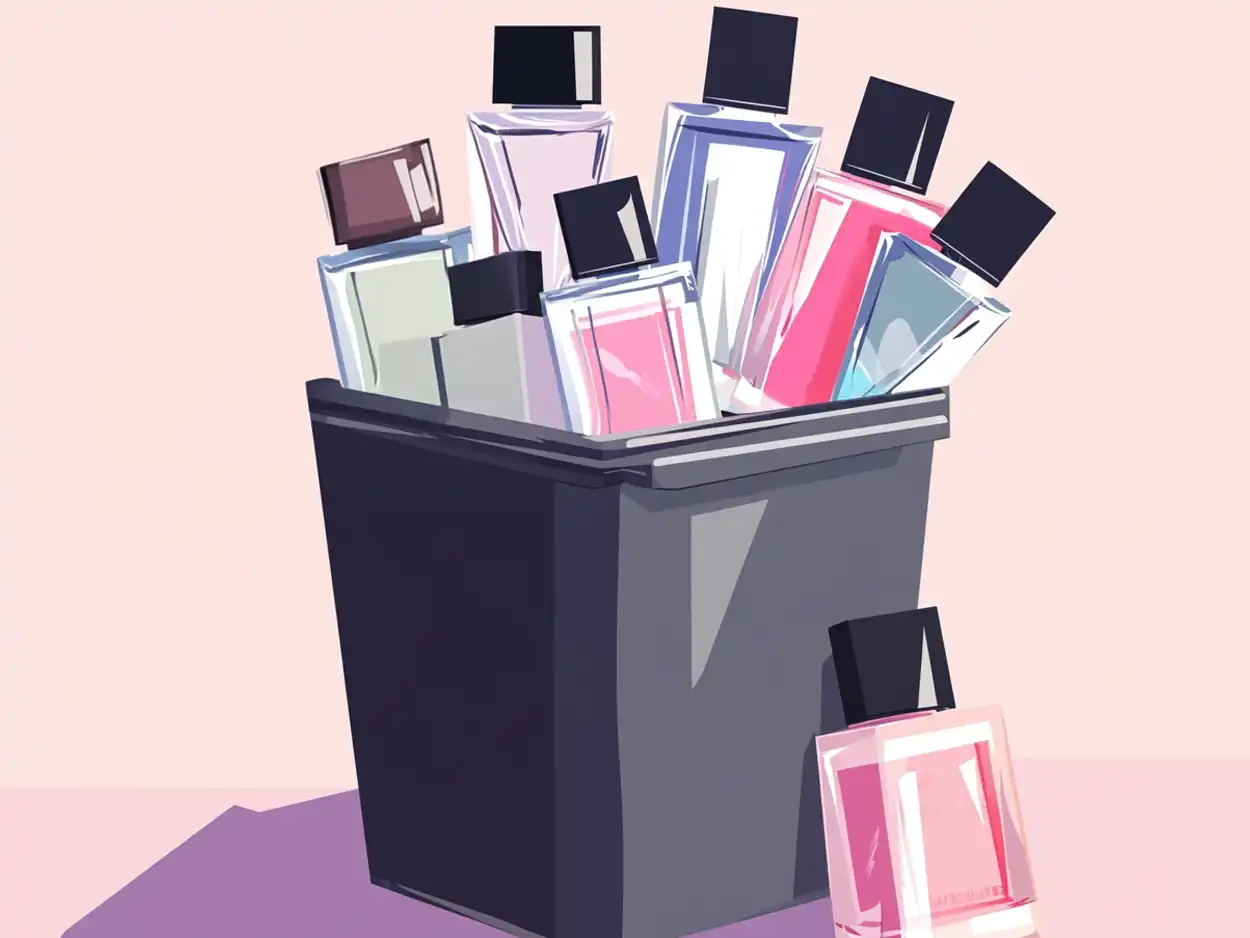Imagine the disappointment of reaching for a signature scent, only to discover it’s no longer available. This scenario plays out all too often in the fragrance world, leaving devoted fans scrambling to find the last remaining bottles of their beloved perfumes. The discontinuation of fragrances is a common occurrence in the ever-evolving perfume industry, but the reasons behind these decisions are often shrouded in mystery.
For many, a favorite perfume is more than just a pleasant scent; it’s a part of their identity, linked to cherished memories and personal style. The sudden disappearance of such an integral part of one’s daily routine can be jarring and even emotional. As consumers grapple with the loss of their preferred scents, questions arise about the factors that lead to these discontinuations.
Reason 1: Sales Performance
Let’s be real, money is the main reason – one of the primary drivers behind perfume discontinuation is lackluster sales performance. The fragrance industry is highly competitive, with new releases constantly vying for shelf space and consumer attention. When a perfume fails to meet sales targets, it often faces the chopping block, regardless of its artistic merit or loyal fan base.
Perfume houses invest significant resources in developing, marketing, and distributing their fragrances. If a scent doesn’t generate sufficient revenue to justify these costs, it becomes a financial liability. Even well-established fragrances can fall victim to this fate if their sales begin to decline over time. The industry operates on tight profit margins, and underperforming products are frequently culled to make room for potentially more lucrative offerings.
It’s worth noting that sales performance isn’t always indicative of a fragrance’s quality or appeal. Niche perfumes with devoted but small followings may struggle to achieve the sales volumes necessary to remain commercially viable, despite their artistic value. This reality often leads to the discontinuation of unique and innovative scents that fail to capture a wider audience.
Reason 2: Changing Consumer Preferences
The perfume industry is highly susceptible to shifting trends and evolving consumer tastes. What was once a best-selling fragrance can quickly fall out of favor as preferences change. These shifts can be influenced by various factors, including cultural movements, celebrity endorsements, and broader fashion trends.
For instance, the rise of clean and natural beauty products has led to increased demand for fragrances with simpler, more transparent ingredient lists. This trend has put pressure on traditional perfumes that rely on complex synthetic molecules. As a result, some older formulations may be discontinued in favor of newer, “cleaner” alternatives that align with current consumer preferences.
Generational shifts also play a significant role in changing fragrance preferences. Scents that were popular among Baby Boomers or Gen X might not resonate with Millennials or Gen Z consumers. Perfume houses often discontinue older fragrances to make way for new releases that target younger demographics, hoping to capture the next generation of fragrance enthusiasts.
Moreover, the concept of signature scents has evolved. Many modern consumers prefer to maintain a wardrobe of fragrances for different occasions rather than committing to a single scent.
Reason 3: Ingredient Availability and Regulations
The perfume industry faces constant challenges related to raw materials and regulatory compliance. Certain natural ingredients, prized for their unique olfactory properties, may become scarce due to environmental factors, overharvesting, or geopolitical issues. When a key ingredient becomes unavailable or prohibitively expensive, perfume houses may be forced to discontinue fragrances that rely heavily on these components.
Climate change has emerged as a significant threat to the availability of natural perfume ingredients. Extreme weather events, shifting growing seasons, and changing ecosystems can impact the yield and quality of botanical ingredients. For example, the production of sandalwood, a popular base note in many fragrances, has been affected by deforestation and climate-related stressors, leading to supply shortages and price increases.
Regulatory changes also play a crucial role in perfume discontinuations. Health and safety regulations governing the use of certain ingredients in fragrances are constantly evolving. The International Fragrance Association (IFRA) regularly updates its standards, sometimes restricting or banning ingredients that were previously common in perfumery. When faced with these new regulations, perfume houses must either reformulate their fragrances or discontinue them entirely.
Reformulation can be a complex and costly process, often resulting in a scent that differs noticeably from the original. In some cases, brands may decide that the reformulated version doesn’t meet their quality standards or fails to capture the essence of the original fragrance, leading to its discontinuation. This scenario is particularly common with older fragrances that were created before current regulatory frameworks were in place.
Reason 4: Brand Strategy and Portfolio Management
Perfume discontinuations are not always driven by external factors; sometimes, they result from deliberate brand strategies. Fragrance houses regularly review and update their product portfolios to maintain relevance, streamline operations, and optimize profitability. This process often involves discontinuing older or underperforming fragrances to make room for new releases.
Limited edition fragrances are a prime example of strategic discontinuations. Brands often release these scents as part of a marketing strategy to create buzz and drive sales through scarcity. Once the limited run is sold out, the fragrance is discontinued, sometimes leading to increased demand and a cult following. This approach allows brands to maintain a sense of exclusivity and keep their offerings fresh and exciting.
Corporate acquisitions and mergers can also lead to perfume discontinuations. When a larger company acquires a smaller brand, they may streamline the combined product portfolio, discontinuing fragrances that don’t align with their overall strategy or that compete with existing offerings. This consolidation can result in the loss of beloved niche fragrances as they’re absorbed into larger corporate structures.
Rebranding efforts are another strategic reason for discontinuing fragrances. As brands evolve and seek to appeal to new demographics, they may phase out older fragrances that no longer fit their desired image. This can be particularly true for luxury brands aiming to modernize their appeal or mass-market brands attempting to move upmarket. In these cases, discontinuations are part of a broader strategy to reshape the brand’s identity and market position.
Before We Disappear
While saying goodbye to your favorite fragrance can be tough, it doesn’t mean your perfume journey is over. In fact, it could be the start of an exciting new chapter in your scent story. Don’t let panic set in when you hear your go-to perfume is being discontinued. Instead, see it as a chance to discover new smells you might love even more.
If you’re mourning the loss of a discontinued perfume, there’s still hope. Try to figure out what you loved most about it – maybe it was the sweet vanilla notes or the fresh citrusy scent. Once you know this, you can start looking for similar fragrances. Many perfume shops and websites have tools to help you find scents that match your old favorite. They might call these “fragrance finders” or “scent matchers.”
You could also check out smaller, independent perfume makers. They often create their own versions of classic discontinued scents, putting their own unique spin on them. This could lead you to some really cool, lesser-known fragrances you might not have found otherwise.
Remember, it’s always a good idea to have a backup bottle of your favorite scent, just in case it gets discontinued. That way, you’ll have some time to find a new fragrance without feeling rushed.

